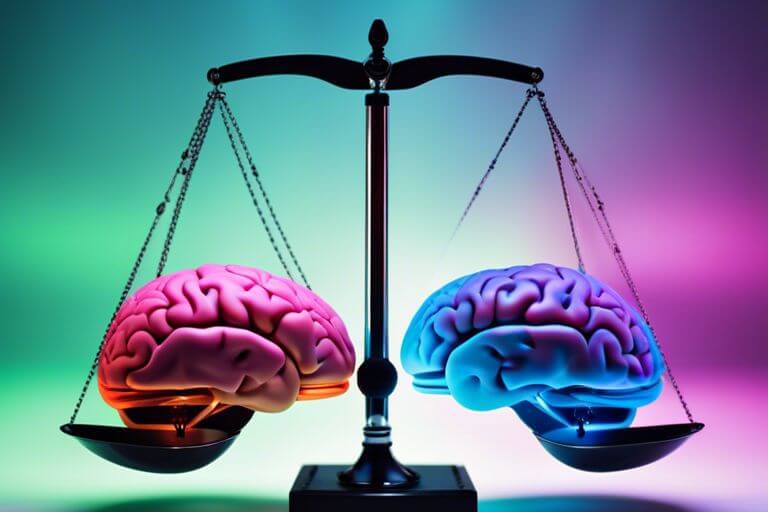The Weight of Sleeplessness: Understanding Insomnia’s Role in Weight Gain

Just imagine, tossing and turning all night, unable to achieve a restful slumber. The repercussions of inadequate sleep extend far beyond fatigue and irritability.
Research has shown a direct correlation between poor sleep quality and weight gain. For those grappling with weight management issues, addressing sleep problems is crucial for overall health and well-being.
In this informative blog post, we investigate into the intricate relationship between insomnia and weight gain, shedding light on the mechanisms at play and offering evidence-based strategies to manage both conditions effectively.
The Science of Sleep and Metabolism
Understanding Sleep Cycles and Their Functions
To comprehend the connection between poor sleep and weight gain, we must examine into the intricate world of sleep cycles.
Sleep consists of two main phases: REM (rapid eye movement) and NREM (non-rapid eye movement).
During REM sleep, our brains are active, dreaming occurs, and our bodies are nearly immobile to prevent us from acting out dreams. NREM sleep is crucial for physical restoration, repair, and growth.
An imbalance in these cycles can disrupt our body’s metabolism and lead to weight gain.
The Impact of Sleep Deprivation on Metabolic Health
An inadequate amount of quality sleep can wreak havoc on our metabolic health, impacting hormone regulation, appetite control, and energy balance.
Studies have shown that sleep deprivation is linked to an increased risk of obesity, diabetes, and other metabolic disorders.
Understanding the profound impact of sleep deprivation on metabolic health is crucial in managing weight and overall well-being.
Exploring the Link Between Insomnia and Weight Gain
Hormonal Imbalances: Ghrelin and Leptin
Some research suggests that inadequate sleep can disrupt the delicate balance of hormones that regulate appetite and metabolism.
Ghrelin, the hunger hormone, increases with insufficient sleep, leading to heightened feelings of hunger and cravings for high-calorie foods. On the other hand, leptin, responsible for signaling fullness, decreases, causing individuals to consume more calories than necessary.
This hormonal imbalance can contribute to weight gain over time, even without significant changes in diet or exercise.
Behavioral Changes Affecting Appetite and Activity
An imbalance in hormones is not the only factor at play.
Sleep deprivation also affects behavior, leading to alterations in appetite and physical activity levels.
For instance, individuals experiencing sleep difficulties often feel more fatigued and less motivated to engage in physical exercise.
Additionally, they may turn to comfort foods high in sugar and fats as a source of quick energy, further exacerbating weight gain.
Strategies to Improve Sleep and Manage Weight
Lifestyle Modifications for Better Sleep
Sleep is crucial not only for managing weight but also for overall health and well-being.
To improve your sleep quality, consider implementing lifestyle modifications such as establishing a bedtime routine, limiting screen time before bed, creating a calm and dark sleep environment, and practicing relaxation techniques like deep breathing or meditation.
Consistency in these habits can help regulate your sleep-wake cycle and promote better rest, which in turn can support weight management efforts.
Nutritional and Exercise Interventions for Weight Control
With poor sleep often comes increased cravings for unhealthy foods and reduced motivation for physical activity, which can contribute to weight gain.
To combat this cycle, focus on maintaining a balanced diet rich in nutrient-dense foods and engaging in regular exercise.
For instance, incorporating more fruits, vegetables, lean proteins, and whole grains into your meals can provide crucial nutrients and support weight loss efforts.
Additionally, engaging in physical activities that you enjoy, such as walking, cycling, or yoga, can help improve both sleep quality and weight management.
Preventative Measures and Treatments
Cognitive Behavioral Therapy for Insomnia (CBT-I)
Preventative measures are crucial in managing both weight gain and poor sleep quality.
Cognitive Behavioral Therapy for Insomnia (CBT-I) has been shown to be a highly effective non-pharmacological treatment for insomnia, with studies indicating that it can improve both sleep duration and quality.
By addressing negative thought patterns and behaviors that contribute to insomnia, CBT-I can help individuals break the vicious cycle of sleep disruption leading to weight gain, and vice versa.
Pharmaceutical and Alternative Medicine Options
Therapy is crucial in finding the right balance of treatment options for managing weight gain and poor sleep.
Pharmaceutical options such as sleep aids may provide short-term relief, but it’s important to consider potential side effects and dependency risks.
Alternative medicine approaches like herbal supplements or acupuncture may also offer some relief, but their efficacy varies and should be approached with caution.
To ensure a comprehensive approach to addressing both weight gain and sleep problems, consulting with a healthcare provider to discuss the best options for individual needs is crucial.
The Weight of Sleeplessness: Understanding Insomnia’s Role in Weight Gain
The link between poor sleep and weight gain is undeniable. Understanding and addressing this connection can significantly impact both your sleep quality and weight management journey.
Implementing strategies such as maintaining a regular sleep schedule, creating a relaxing bedtime routine, and addressing underlying sleep disorders can help improve your overall health and well-being.
Recognize that managing weight gain and sleep problems go hand in hand. Addressing one may positively impact the other.
Stay informed, seek professional guidance when needed, and remember that small changes in your daily habits can lead to significant improvements in your sleep and overall health.





